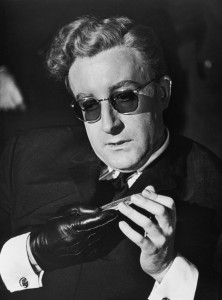The death of John Nash with his wife Alicia in a car accident is a sad, sad end to a remarkable life. The story of Nash’s genius, madness and recovery is well known thanks to the movie based on Sylvia Nasar’s wonderful biography, [amazon_link id=”0571212921″ target=”_blank” ]A Beautiful Mind[/amazon_link]. There have been many obituaries and appreciations. This VoxEU column is an excellent outline of why Nash’s work was so important for economics.** John Cassidy has a nice New Yorker column. [amazon_link id=”0691095272″ target=”_blank” ]The Essential John Nash[/amazon_link] is certainly worth a go – there are pdfs of the introductory material on the Princeton University Press website – and there is plenty of material on the Nobel prize website.
[amazon_image id=”0691095272″ link=”true” target=”_blank” size=”medium” ]The Essential John Nash[/amazon_image] [amazon_image id=”0571212921″ link=”true” target=”_blank” size=”medium” ]A Beautiful Mind[/amazon_image]
For more on game theory, one very enjoyable historical perspective – looking too at other uses of mathematics in economics – is Paul Strathern’s [amazon_link id=”0140299866″ target=”_blank” ]Dr Strangelove’s Game: A Brief History of Economic Genius[/amazon_link]. It starts with John Von Neumann (giving the impression that Peter Sellers as Dr Strangelove only slightly overacted the role), and Morgenstern ad Von Neumann’s [amazon_link id=”0691130612″ target=”_blank” ]Theory of Games and Economic Behaviour[/amazon_link] and ends with John Nash. Interestingly, Strathern focuses on the difference between co-operative and non-cooperative games rather than zero and non-zero sum. As for the uses of game theory in life, rather than just economics, my favourite book is Dixit and Nalebuff’s [amazon_link id=”0393337170″ target=”_blank” ]The Art of Strategy[/amazon_link] – it has a website where you can read an excerpt.
Step one in using game theory in life is just to think about how other people will react to your actions – something so easy to say, yet so rarely done.* And how paradoxical that something that seems like common sense had its roots in unusually tortured genius.
[amazon_image id=”0140299866″ link=”true” target=”_blank” size=”medium” ]Dr. Strangelove’s Game: A Brief History of Economic Genius[/amazon_image] [amazon_image id=”0691130612″ link=”true” target=”_blank” size=”medium” ]Theory of Games and Economic Behavior (Princeton Classic Editions)[/amazon_image] [amazon_image id=”0393337170″ link=”true” target=”_blank” size=”medium” ]The Art of Strategy: A Game Theorist’s Guide to Success in Business and Life[/amazon_image]

Dr Strangelove, an atypical economist
*I remember once saying to a room full of policy economists that figuring out the Nash equilibrium in the context of a decision different EU governments were making at the same time meant our policy advice was a no-brainer; not all of them got the point.
** Update for econ anoraks: Note the nice description here of Nash’s bargaining solution as a Possibility Theorem, published at the same time Arrow developed his Impossibility Theorem. I think it’s the unrestricted domain axiom that makes the difference.

Pingback: More on game theory | Homines Economici
Hi Diane,
A bit of pedantry, but you have ** before *.
I’m currently reading through Economic Fables, which I think was your book of the year recently. I’m only part way through, but the author is quite refreshingly honest in saying he thinks game theory is more useful theoretically than as a model of real-world behaviour.
Would you think that’s fair, or do you know of real world (perhaps commercial) applications of game theory?
Good qu. I agree with Ariel that formal game theory applications are limited, although have been used very effectively in eg spectrum and T Bond auctions. But also true that thinking strategically – ie how will others react one, two, three steps ahead – both rare and useful in business and policy.